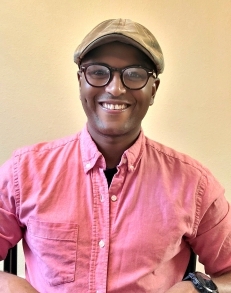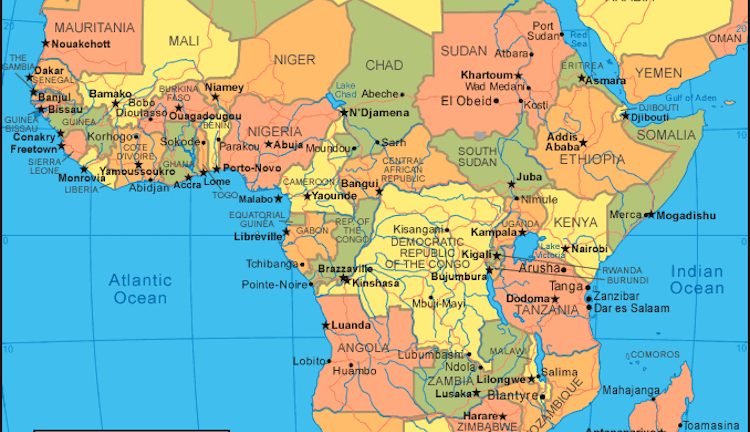By Daniel Haile
KILLEEN, Texas, USA | 30 October 2023 (IDN) — The African continent must redefine its global position amidst the rivalry between the United States and China. Renewed economic, political, and military competition should not dissuade African states from forging their economic and political development path.
While the previous Cold War was indeed a “Cold War” only for the two superpowers engaged in ideological and economic competition, for the Global South, it became a hot and enduring war marked by instability, insecurity, political assassinations, and tragic human loss. African heads of state understand that war remains relevant and will continue to be so in the 21st century.
Much like the previous Cold War, nuclear deterrence may mitigate large-scale conflicts, but instability, violence, and uncertainty will primarily stem from weak and failed states. These issues will continue to afflict the African continent unless political, human, and economic security are addressed at the subsidiary level.
Stability and Security
In the US-China competition, the African continent will not gravitate strictly toward the West or East, nor will it participate in the defunct Non-Aligned Movement. While the scars from the Cold War era have healed in some ways, they continue to linger in the collective African memory, reminding them of their enduring impact, even if not entirely forgotten. African countries are not subjected to a prescribed form of governance, be it parliamentary, presidential, single-party, religious theocracy, or monarchy, as the African continent can accommodate all of them. African governments understand what works and what doesn’t.
The aggregate consensus is that command economies have no place in Africa, and the economic failures of the Soviet Union, North Korea, and Eritrea serve as a testament to this. Market economies or mixed economies are the two avenues African countries must consider. These approaches have worked for China and Singapore and will undoubtedly work for African countries.
In contrast, natural resources are not the true wealth of African states; cultivating and preserving their human capital can propel the continent forward. African states should focus on human development instead of being the primary source of international human capital flight. Countries like China and Singapore have shown the international community that economic growth does not hinge on a Western-style democracy. Conversely, Japan and South Korea have demonstrated that adopting democratic governance complements economic development. Nevertheless, African countries have four models (Singapore & China versus South Korea and Japan), each with exceptions.
It would be futile for African states to replicate these models merely. Instead, they should craft an African-style economic and political development by utilizing these four models as templates without reinventing the wheel, and this is precisely what a small nation East-Central has been doing. Rwanda, a nation that had to reinvent itself after the brutal Rwandan Civil War, stands on the cusp of becoming East-Central Africa’s economic and political hegemony. The authoritarian leader who has propelled Rwanda from the ashes of economic and political decadence is Paul Kagame, a leader who envisions himself as the African equivalent of Lee Kuan Yew. Thus far, the leadership of Paul Kagame and the political and economic model have proven successful for Rwanda, and that is what truly matters. Rwanda does not need to cater to or constrain itself for the West or the East but rather prioritize the welfare of its inhabitants.
Lessons from Somalia
The notion that homogeneity is the key to economic success and political stability has been debunked by Somalia’s example. Somalia has more in common with Japan and South Korea than other African states. Somalia stands out as a peculiar anomaly, composed of only one ethnic group that shares the same linguistic attributes and religious affiliation, Sunni Islam.
Somalia serves as a poignant case study, illustrating that the quest for linguistic, ethnic, and religious composition does not hold the answer for African economic and political development. If that were true, Somalia would have been the African Lion on the same pedestal as one of the Asian Tigers, such as Japan and South Korea. Instead, Somalia has been relegated to the “Afghanistan of Africa” status for the last three decades due to clan identity superseding ethnic and national identity.
As for the direction in which the African continent is moving forward, it remains to be determined. However, one thing is certain: Africans are opposed to Western intervention. The question concerning Western intervention in Libya should not revolve around whether it was warranted or unwarranted, just or unjust, but rather, what it produced: stability and security or uncertainty and insecurity for the Libyan people.
The question should not be answered by an academic or a flyover humanitarian residing in the West but rather by an ordinary Libyan who has to face the consequences of living in a country in the midst of a civil war since the departure of the strongman who exercised a monopoly on violence and provided stability and security, Muammar Gaddafi.
Benevolent Authoritarian Leadership
Democracy is not feasible in every African country, just as it is not in every Middle Eastern country. In places where electricity, running water, primary, secondary, and tertiary education systems are absent, where government structures lack the ability to enforce a monopoly on violence, where the constant fear of civil war looms, and where non-state actors thrive, stability and security take precedence over representative democracy. It is unfair to categorize and stigmatize all African authoritarian leaders with a Western brush. Figures like Idi Amin Dada, Charles Taylor, and Mengistu Haile Mariam differ significantly from Sékou Touré, Meles Zenawi, and Paul Kagame.
The concept of “exporting democracy” is an impractical Western idealistic concept. Western policymakers evade and are reluctant to ask the most imperative questions: “Is a Western-style democracy compatible with African societies, and what are the necessary prerequisites for a democratic political system suited to African states? Consequentially, Iraq and Afghanistan are prime examples illustrating that certain political institutions cannot function in every corner of the world, and Africa is no exception.
Africa comprises 54 distinct countries divided into five regions: East Africa, North Africa, West Africa, Central Africa, and Southern Africa, with a population of 1.4 billion and projected to reach 2.5 billion by 2050. Moreover, the continent is home to Christianity, Islam, traditional African religions, and a mosaic of 2,000 indigenous African languages. Consequently, Africa is one of the world’s most diverse continents—a fact frequently overlooked by external actors.
Authoritarian leaders in Africa seldom promote economic development because it undermines their ability to maintain power unless an implicit social contract exists between the governed and the ruling establishment, exchanging authoritarian rule for stability, security, and economic progress. Thus, is it more likely to witness authoritarian leaders akin to Lee Kwan You, Deng Xiaoping, and Park Chung Hee on the African continent or figures such as Isaias Afwerki, Robert Mugabe, or Teodoro Obiang Nguema?
Authoritarian leaders lacking a comprehensive economic and political vision are unlikely to have a lasting presence in Africa, and political dinosaurs like Isaias Afwerki, Robert Mugabe, or Teodoro Obiang Nguema will be consigned to the annals of history with few accomplishments.
The new generation of African leaders will be Western-educated, advocating for economic development. They will, akin to Meles Zenawi and Paul Kagame, remain resistant to embracing Western-style democratic leadership at the expense of stability, security, and economic prosperity.
Harsh reality
The assumption that the inhabitants of Africa share the same concerns and priorities as Western inhabitants can only be made by those who have never set foot on the continent. It is easy to judge certain authoritarian leaders from the comfort of Western living. However, when inhabitants of “developing countries” face the choice between anarchy and civil war or authoritarian leadership, they will choose authoritarian leadership. Not because they do not enjoy or seek liberty and individual freedom but because it is the cost they have to pay in exchange for security and stability.
Hence, this is a harsh reality that individuals who have lived in developing countries or been deployed overseas in a military capacity fully comprehend. They have interacted with the local population at the subsidiary level and have partaken in the customs of breaking bread with the local people—a profound lesson in humanity.
Not all authoritarian leaders are created equal, just as democratically elected leaders in the West are not uniform. While it’s comfortable to dismiss authoritarian leaders from the West, individuals such as Mohammad Reza Pahlavi, Muammar al-Qaddafi, Mohamed Siad Barre, Hosni Mubarak, Omar al-Bashir, Isaias Afewerki, Saddam Hussein, and many others in the third world provide two crucial pillars that people in the West often take for granted: security and stability.
If ordinary individuals from these countries had to choose between living in the current conditions of their countries or under the authoritarian leadership of figures like Muammar al-Qaddafi, Omar al-Bashir, Mohamed Siad Barre, Saddam Hussein, and Mohammad Reza Pahlavi, what would their choice be?
The rational and logical option is neither. However, the assumption that Libyans, Sudanese, Somalis, Iraqis, and Persians have a readily available alternative, a smooth transition to Western-style democracy, is irrational. Sometimes, the devil you know is better than the devil you do not.
Africa’s Role Amidst Global Powers
The continent of Africa is not gravitating toward China or the United States; it revolves within itself. It is economically and politically advantageous for Africa to be an equal partner with both Washington and Beijing. The old-fashioned mentality that the second-largest continent must make a binary choice is comical and nonsensical. The pertinent question is what kind of political system African countries will adopt; the answer is an African one.
However, one thing is sure: African countries will continue embracing a market or mixed economy. African countries are well aware that the Eritrean economic model of “self-reliance and command economy” leads to collective misery, hopelessness, and mass migration towards the West. The Cuban and Venezuelan models have no future in Africa, except perhaps in Eritrea, but not much longer.
One element that should not be discounted is how the African diaspora will shape the continent and influence its economic and political trajectory, whether they were educated in the West, East, or the Madrasas of Riyadh. Their contributions will shape the continent for better or worse. The African continent is moving forward, and the pace of its movement can only be determined by its inhabitants.
If African states cement security and stability and implement a market or mixed economy focused on economic and human development, then manufactured obstacles by internal and external actors will not deter the Lion from catching its prey.
Credit: Geology.com | Africa Map and Satellite Image

Daniel B. Haile is a writer and East African geopolitical specialist currently serving as an active-duty US Army CBRN Officer. He holds an MA in International Affairs from the Bush School of Government and Public Service at Texas A&M and an MA and BA in International Studies from Texas State University. The ideas in this essay are solely those of the author and do not represent the official position of the US Army or Department of Defense.


